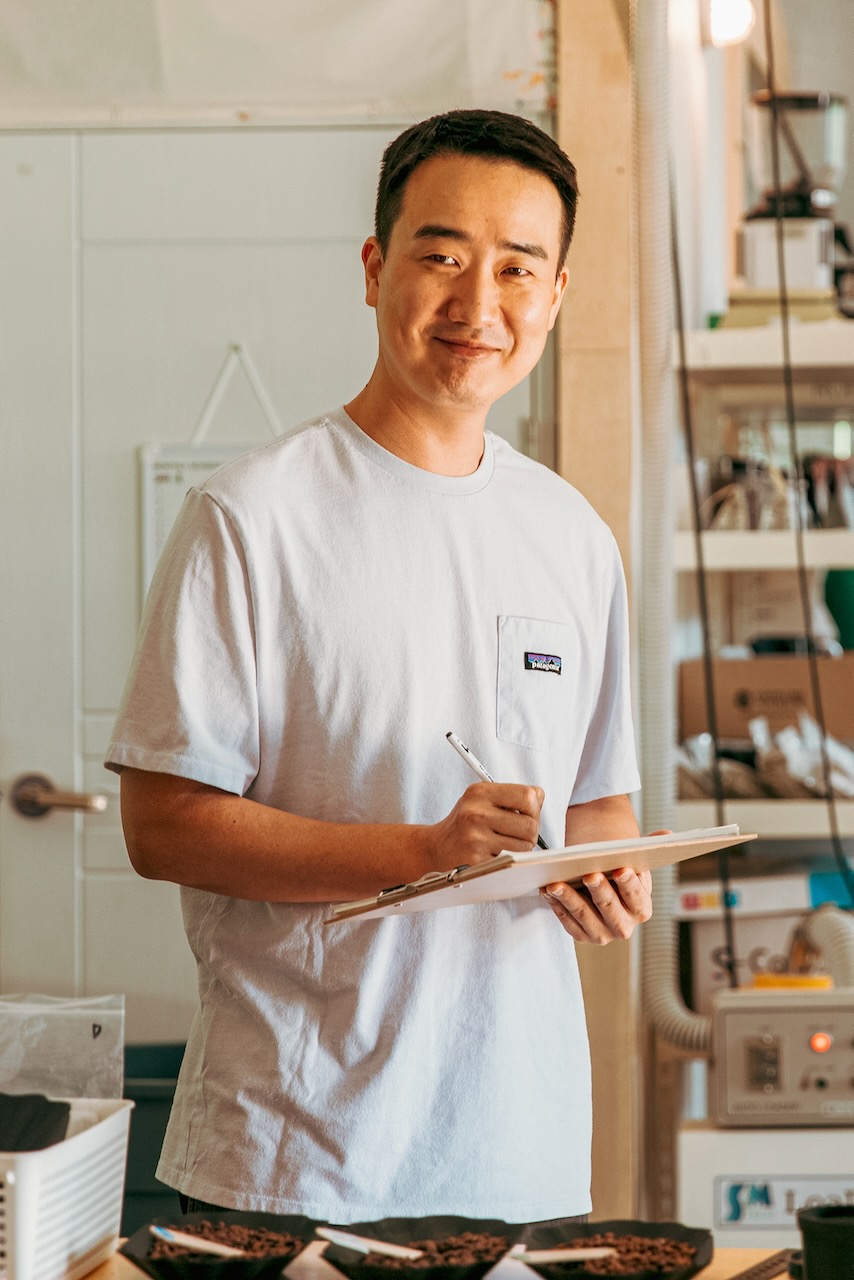
Trust in Yourself: Building a Life Foothold with Coffee
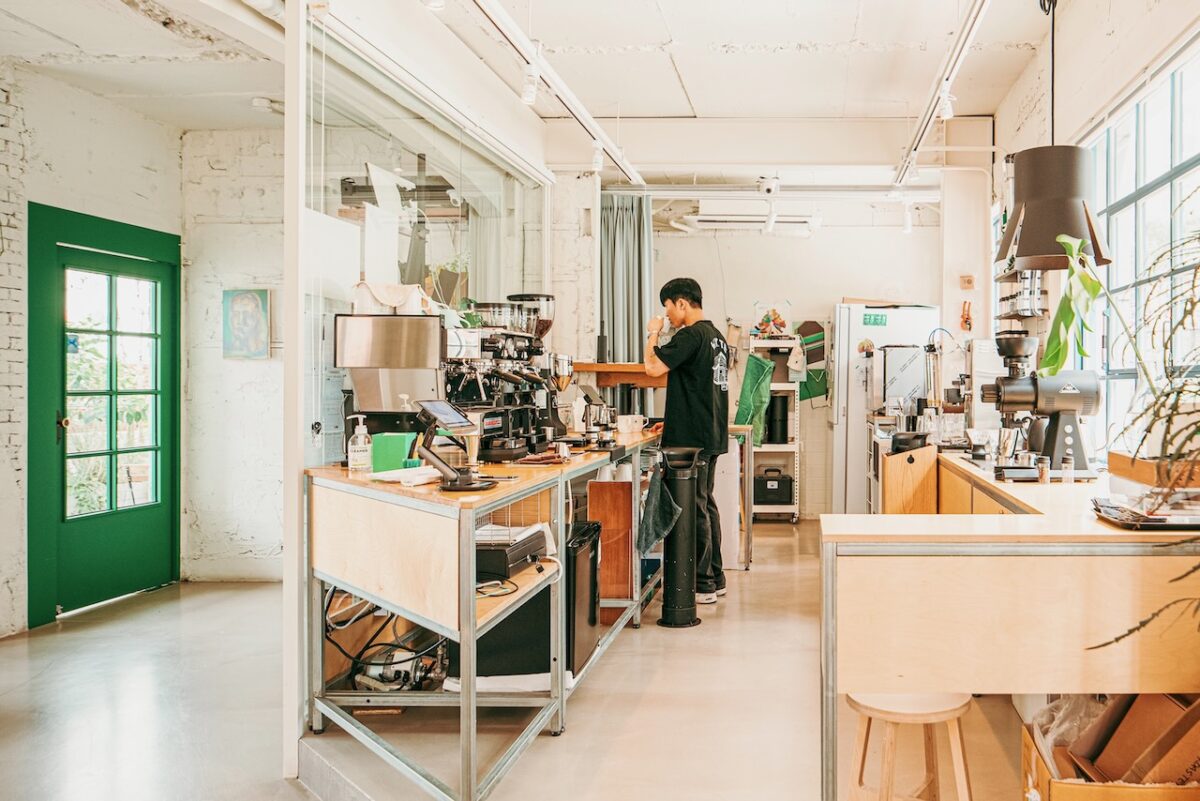
Hytte roastery is a roastery and coffee shop established in 2018 in Busan, South Korea’s second-largest city. Located in Jeonpo-dong, one of the trendiest youth districts in the country, the cafe blends sophistication and comfort.
Jung Hyo jae, a native of Busan, opened the store with his wife. After closing down a roastery that he ran from 2013 to 16, Hyo jae traveled to famous coffee shops worldwide for six months and reopened Hytte with a new look. According to Hyo jae, “Everything changed through the trip,” so we asked him about the meaning and value of his trip. We caught up with him to find out.
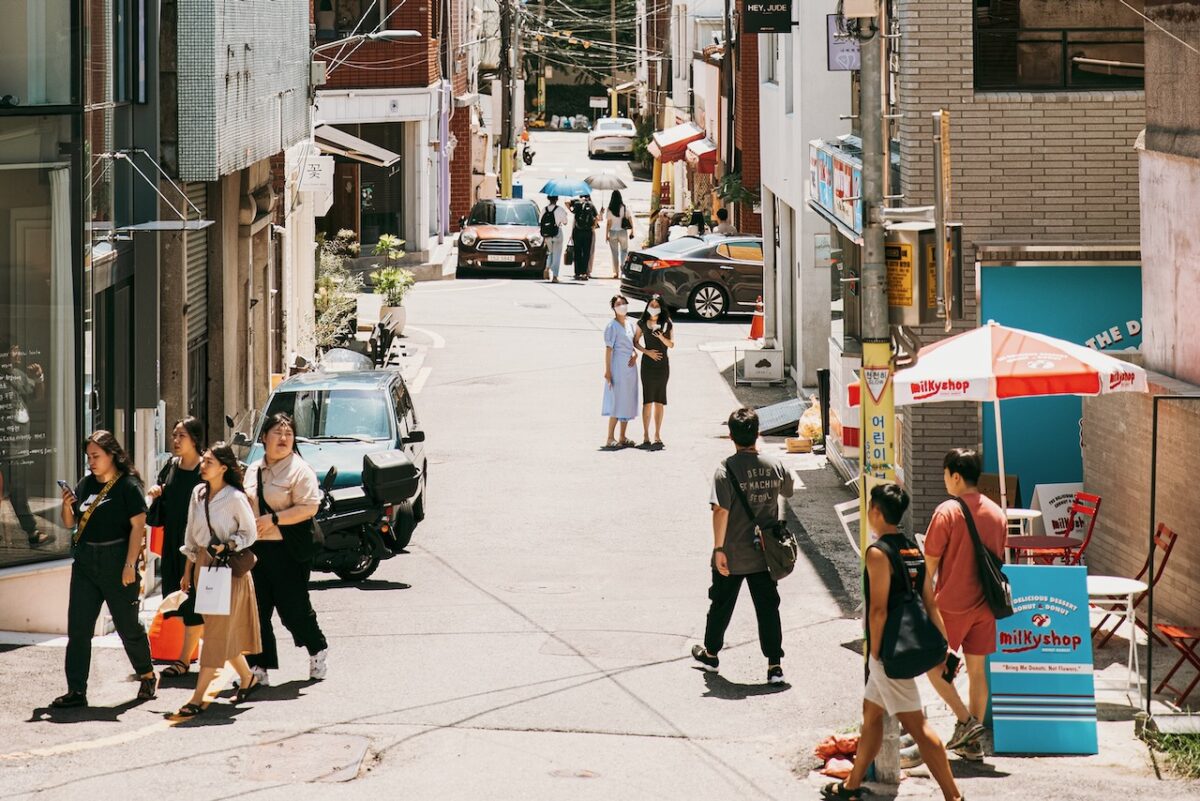
A Flexible Stance Toward Our Goals
Once filled with tool stores, Jeonpo-dong has undergone a complete transformation over the past ten years. New stylish stores have sprung up one after the other, centering along a street named Café Street, which now features an estimated 50 or more cafes.
“The area resembles Seoul’s Seongsu-dong, where customers flock as soon as a new store opens. On the other hand, it is difficult to classify what kind of town it is because of the rapid changes in fashion. In any case, I would say that Busan attracts more creative young people than anywhere else in Korea,” says Hyo jae.
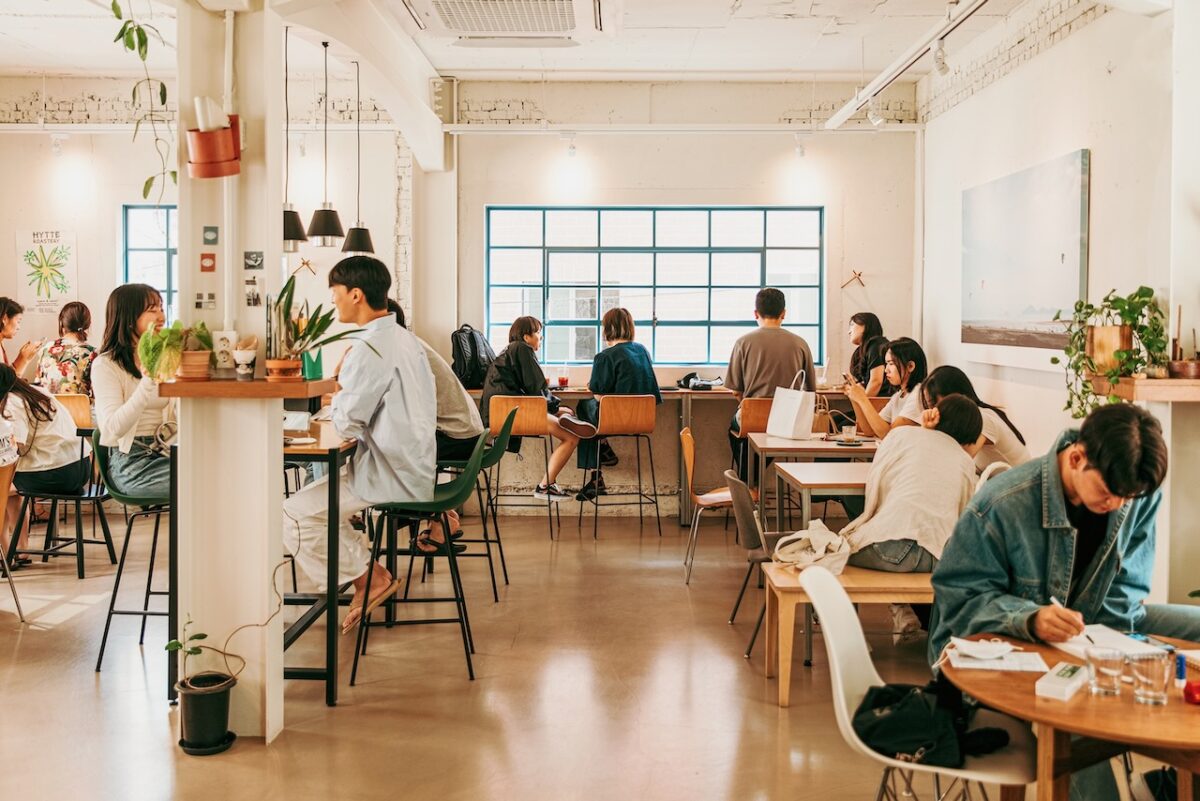
“Most cafes in the Jeonpo-dong area are run by people in their twenties. The cafes offer beautiful, museum-like interiors and have unique concepts. The layout of the seating and background music volume are things young people wouldn’t be able to resist, but for me, in my late 30s, some things don’t suit me.
One customer recently told me, ‘There aren’t many cafes in Jeonpo-dong where I can go with my parents, so I’m glad there’s Hytte.’ Our goal is to create a sophisticated and relaxing cafe—a place where you can take a breather or just casually come with your friends.”
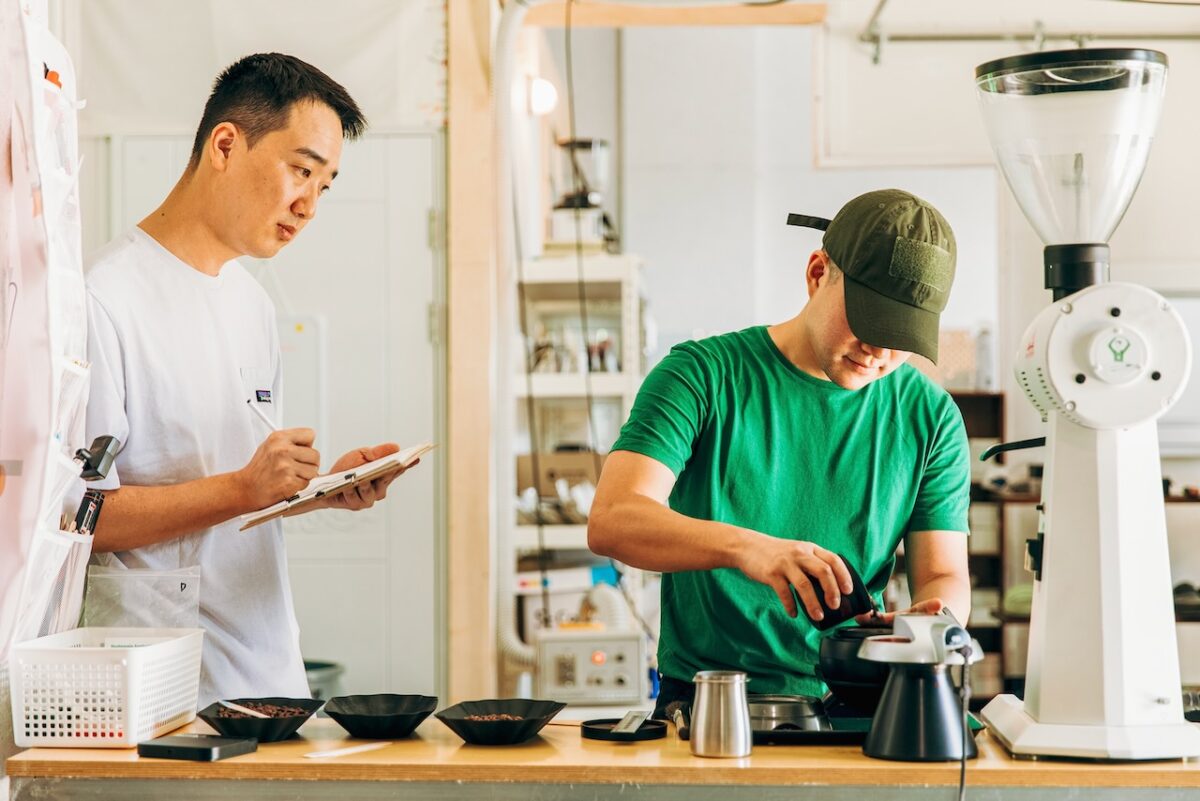
The urban development of Jeonpo-dong is still underway, and across the street from Hytte’s cafe is a row of high-rise buildings completed a few years ago. To maintain the business under such conditions, Hytte has always tried to maintain a flexible stance. The cafe’s hours of operation are decided cooperatively with the staff. And the bar inside is designed to be moved around. They have chosen a method that is not restricted by location or time.
“We also considered the possibility of gentrification raising rent and forcing us to relocate. However, the most important thing for us is to keep working while having fun with our colleagues.”
For Hyo jae, Hytte is the product of his reflection on his past. He used to be one of those young people who ran a cafe focused on looking sophisticated and trendy, trying to stand out from the crowd.

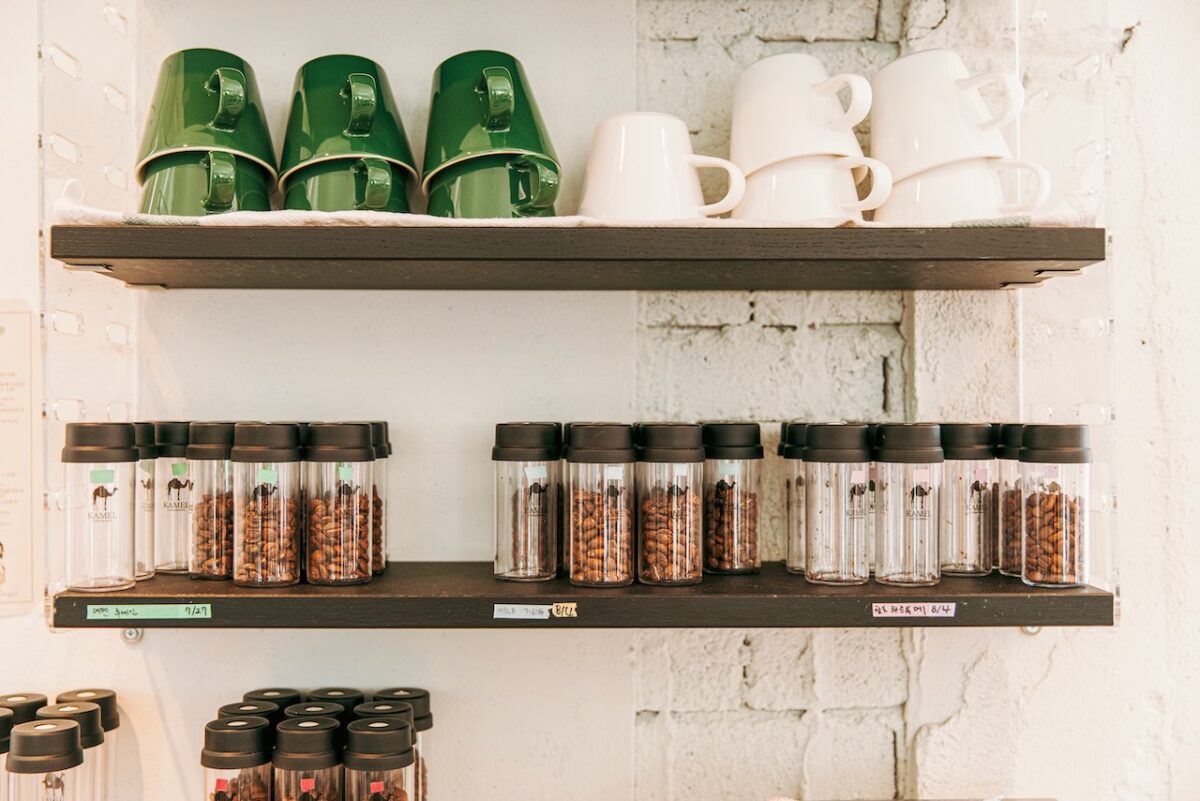
Facing the gap between ideals and reality
Hyo jae first stepped into the world of coffee in 2004, during his sophomore year of college. He began working part-time at a small, mom-and-pop cafe but had little interest in coffee, as he thought there was no difference between coffee beans.
Then one day, he got caught off guard when a customer asked, “What kind of coffee beans do you use in your store?” Since he was working part-time, he just had to follow the recipe for the coffee ordered. It was not a concern to him as someone working at that level.
Hyo jae felt ashamed of his lack of responsibility. It’s what led him to start learning about coffee.
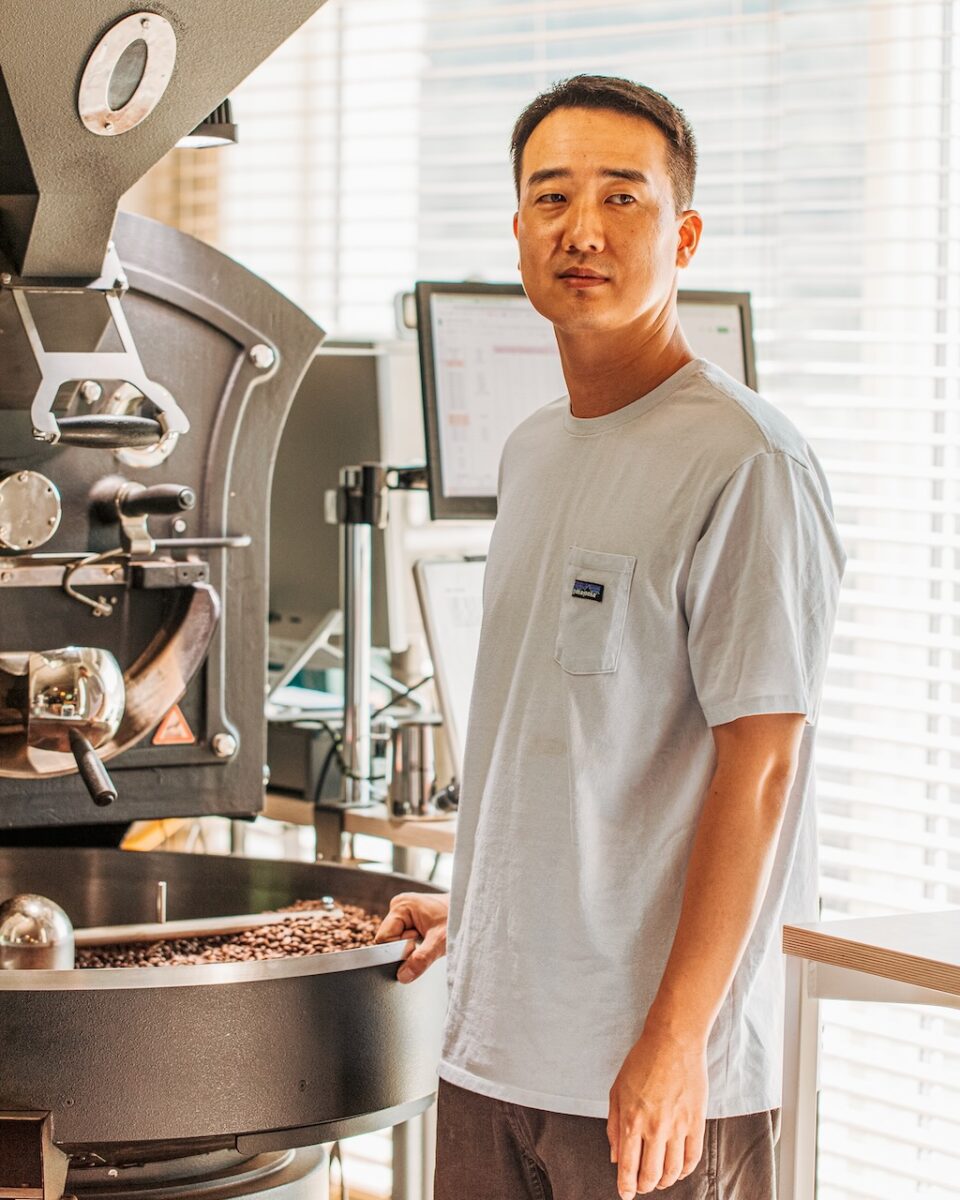
Once he got to know the world of coffee, his interest in it never ceased. After graduating from university, he worked full-time as a barista at a chain cafe in Seoul because he wanted to be fully involved in the world of coffee. Then, seeking to further his education, he changed his job to a café specializing in hand-drip coffee.
As Hyo jae immersed himself in the world of coffee, his dream of owning his store gradually grew. But how could he differentiate from other coffee shops? The solution he came up with was to roast his coffee.
Around the time he married his wife, she, too, had a longing to open a cafe. He had been a barista, while she had been interested in spatial design and fashion since she was a teenager. Together, they could indeed make the store a success, believing, “It would be great to start the day with a cup of coffee in a stylish space while listening to music,” and “I would be happy if I could have pleasant conversations with good customers.”
So they bought a small roasting machine and started a cafe as a couple in 2013. However, it didn’t take long for them to realize that the blueprint in mind was a pipe dream. The competition was fierce, and the customers were very demanding. There was a gap between their taste and demand. Facing these fundamental problems, he found no time to have fun.
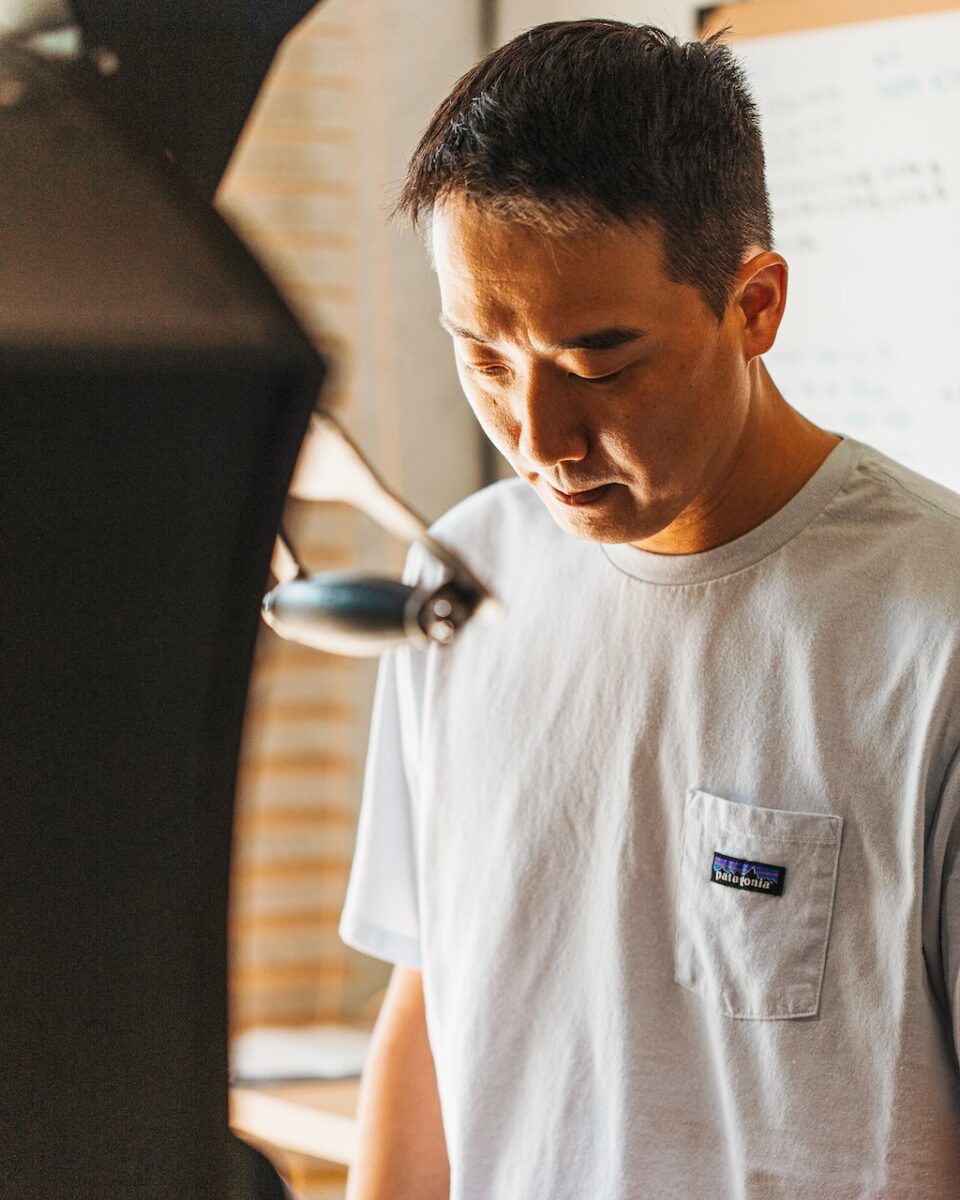
Physical and mental fatigue piled up as he only continued to work and sleep. The two had no clear concept of what they wanted to do and no clue how to correct it. Left stuck in a dead-end world, they eventually decided to quit the cafe. It was in 2016, three years after they opened the shop.
However, it wasn’t that they hated coffee. The desire to stay involved in coffee isn’t something that is forgotten easily. Hyo jae decided to take a trip with his wife to make up his mind.
“We went to famous coffee shops in various countries and drank delicious coffee. I thought that if we hit a wall we couldn’t get over, we would leave this world without any regrets. I had difficulty giving up of my own accord, which was why I was hoping they would make me give up.”

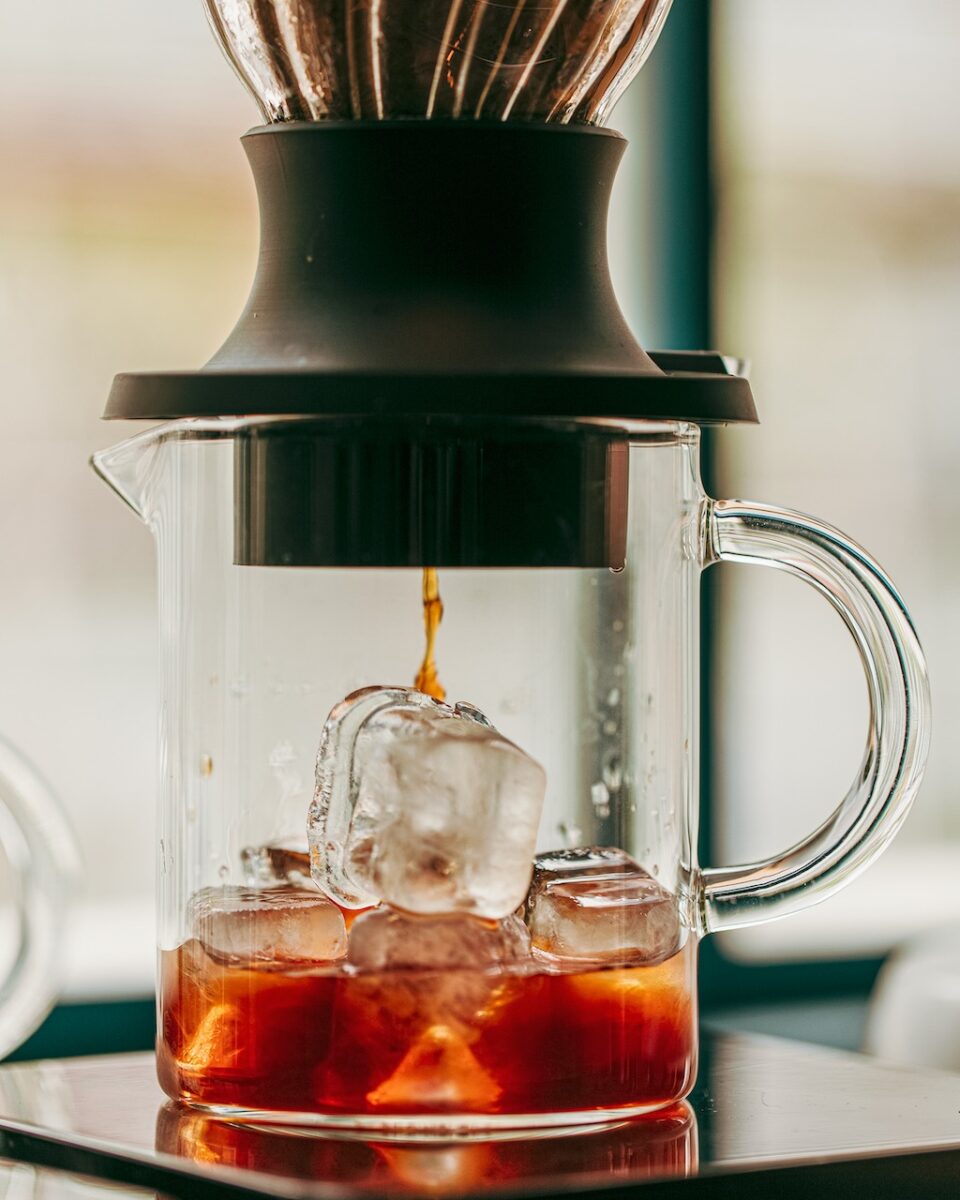
Mindset changed by travel
After leaving South Korea, the couple traveled to famous coffee shops in 10 countries over six months, starting in Japan, followed by Hong Kong, Taiwan, Australia, Norway, Denmark, Germany, and so on. When looking for lodging in each location, they prioritized cafes nearby to visit followed by art galleries, museums, and other institutions with attractive spaces.
“ONIBUS COFFEE was the first coffee shop I visited in Japan that left a lasting impression on me. Up to that point, I had thought that acidic coffee tasted too stimulating and peculiar for the general public to accept. But when I had a cup there, I realized that my perception was merely biased.
Another memorable place is Tim Wendelboe in Norway. Again, the natural taste of the coffee was so striking that it shattered my assumption about specialty coffees as something unique.”
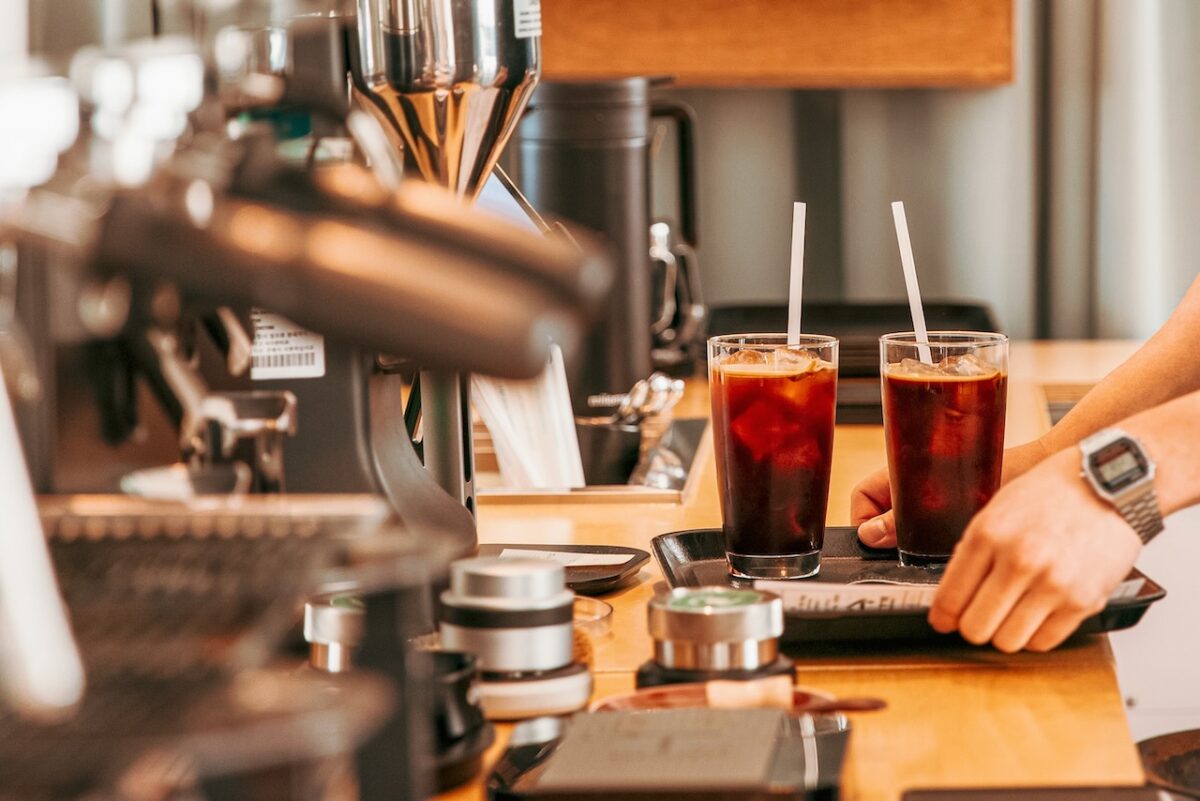
The time they spent as coffee enthusiasts was a much-needed pause for them, as they had started the cafe without guidance. What were they trying to achieve, and what was the purpose of the cafe? Through numerous discussions, their desire to open a cafe grew.
“I had been learning about coffee from books and places like the academy up to that point. That’s why my mind was ahead of my senses. Without tasting the coffee, I pulled knowledge out of my head and distinguished between good and bad coffees. Since we had no clear direction for ourselves, every customer’s reaction, opinion, and daily sales brought us both joy and sorrow. But that six-month trip allowed us to put aside our assumptions and prejudices.
Ultimately, the most significant takeaway from the trip was that we learned to trust our senses. You can’t please everyone, and you can’t trust your senses all the time. After accepting that, we became more committed to trying again.”

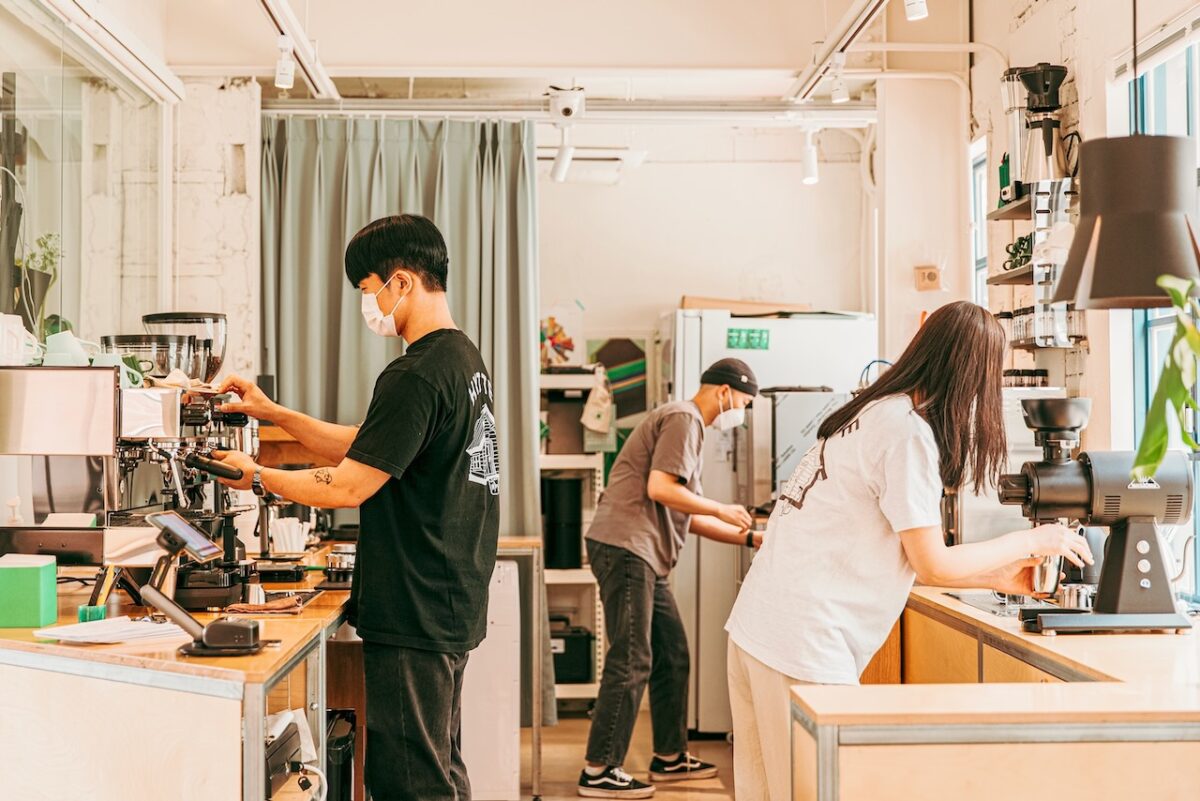
Growth over time
The duo made a fresh start and opened Hytte Roastery in 2018. However, they faced a delightful problem a year later. They decided to close the cafe and focus solely on wholesale because they had more customers than imagined and could not handle the business.
The cafe reopened in 2021, about two years later. Hyo jae hired several staff members as full-time employees who could share in the process of learning and gathering data to serve better coffee, a process far more difficult if done alone.
“Thanks to our trusted baristas, I can entrust them with the tasks they can handle. My wife and I try to have time off from coffee, so we don’t have to spend all day at work.
Previously, even when I had free time, I would go to other cafes to study, and all I could think about was coffee. We got too caught up with how to do things better. However, this doesn’t mean we reject what we were doing back then. On the contrary, thanks to those times, we were able to grow and find new ground.”
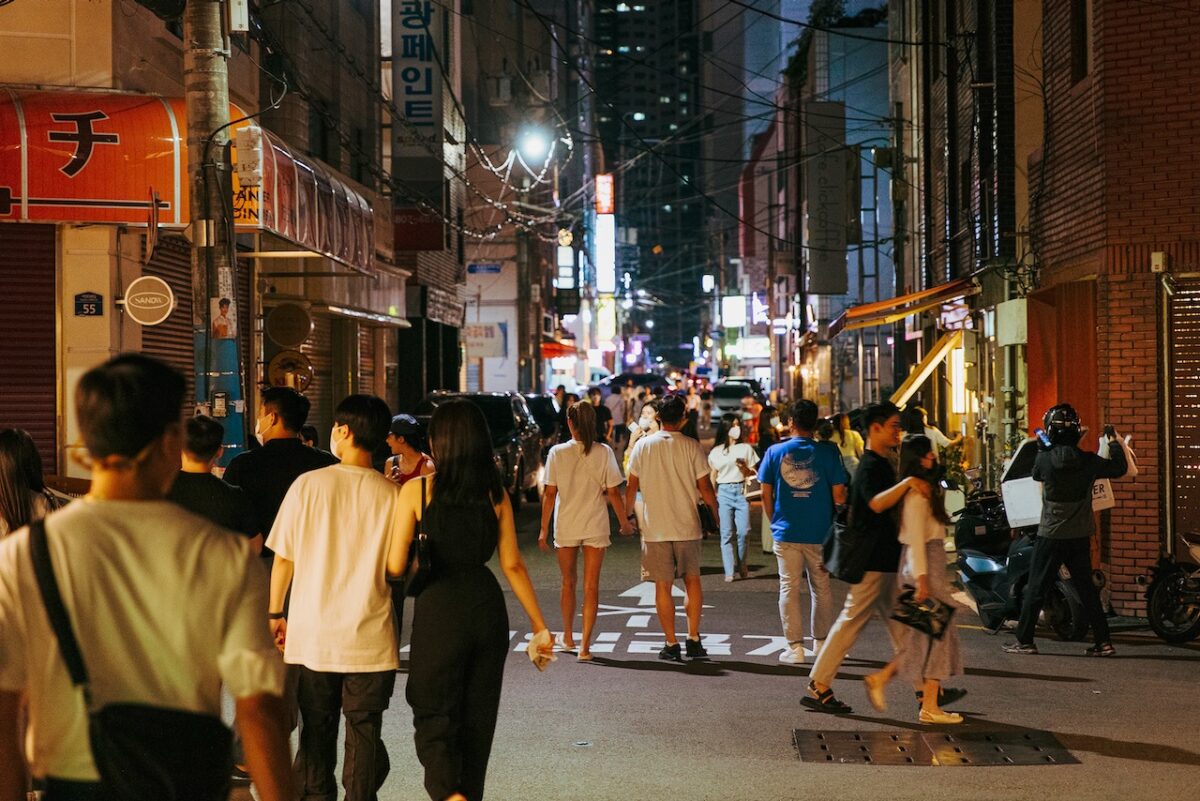
Although South Korea is known for its rapid growth in the specialty coffee market, Hyojae says that “the momentum has been slowing down recently.” Perhaps it has something to do with South Korea’s reputation as a country susceptible to trends; that is why they go out of style quickly.
“I suppose it’s because the world seemed glamorous and attractive from the outside. But now, with the rise of YouTube and other tools to express one’s individuality, it is known that it is not as financially rewarding as one might have hoped. So, ultimately, I think only those who love coffee will be left.
Historically, South Korea is a country that has not had the luxury of slowly cultivating its culture. I don’t necessarily see this as a bad thing. That’s because it has the potential to fuse various cultures and develop its distinctive culture.
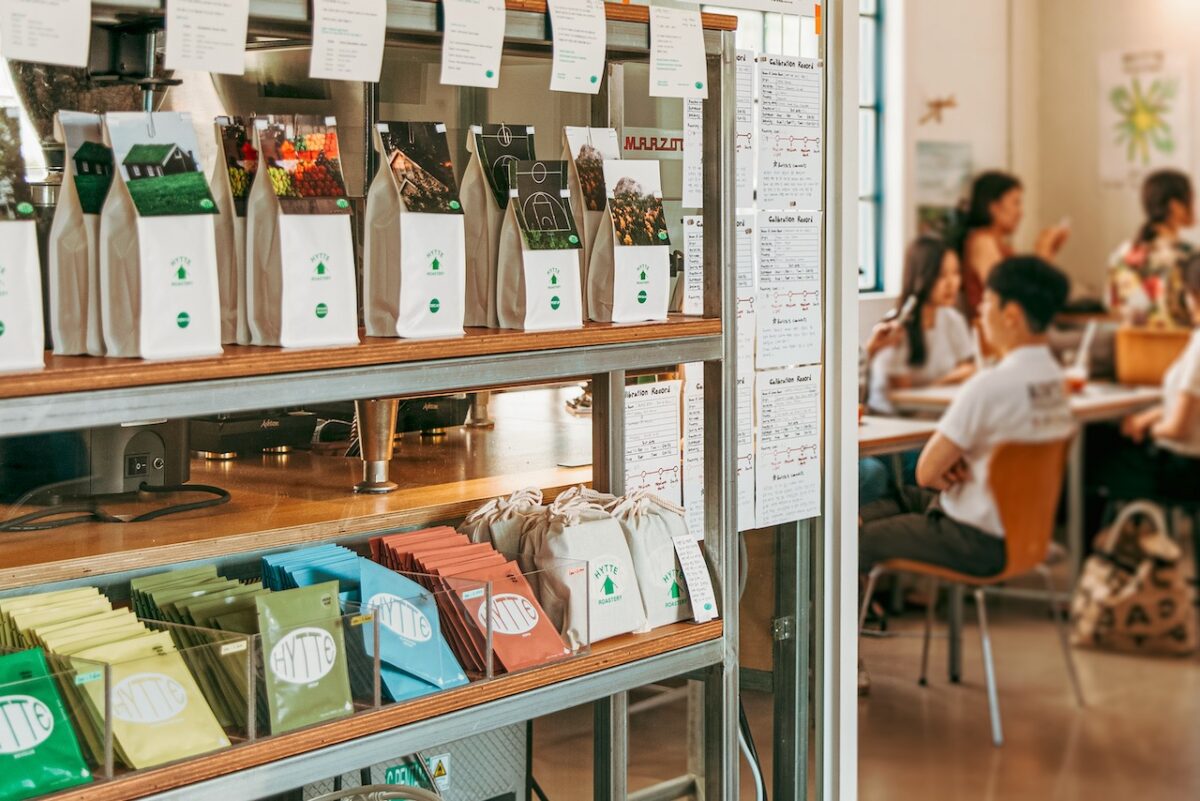
When it comes to coffee, it started with the introduction of the espresso culture in Italy, then to Japan, the U.S., Australia, Scandinavia, and various other cultures exposed to it. In the long run, I think fads nurture cultures as part of the process. For example, in the past, many stores were involved in the same line of business. But now, many have distinct colors, which is proof of this.
It is necessary to keep changing in the world of coffee, where new and diverse products are constantly being created, even for a single store. It is hard to know how and when to change. If you look at specific changes in the short term, they may not be in the right direction. But in a long time, I think you can look at them as part of growth.”
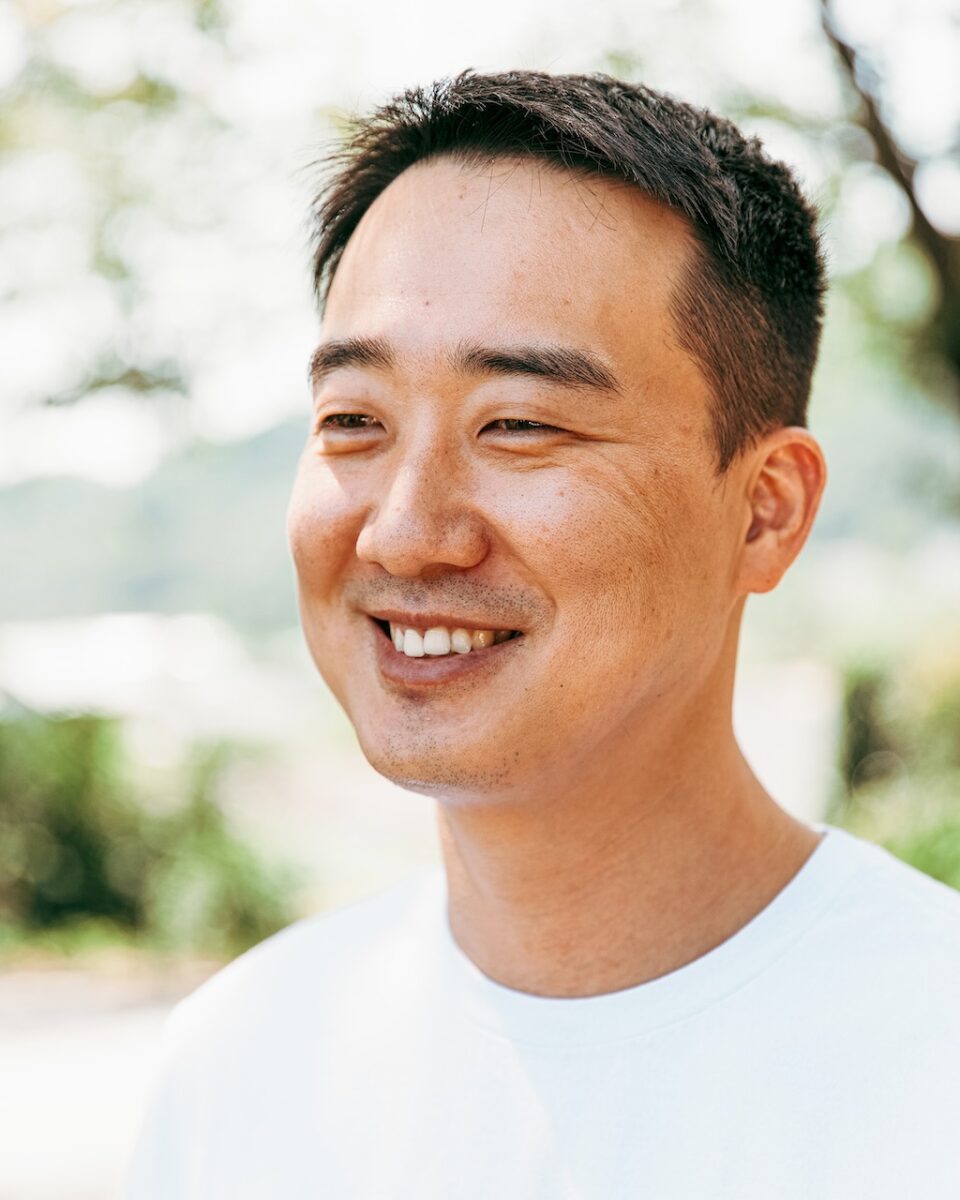
It has been about four years since the shop became Hytte. Even though everything has changed, from the coffee they serve to the interior design, management stance, and mindset, what has remained the same is their passion for providing better coffee. Shortly after opening Hytte, Hyo jae was thrilled when customers from the old café came back to visit the store.
“I had no personal relationship with them nor told them I had opened a new cafe. But somewhere along the way, they found out and came by. Some customers have expressed their feelings, saying, “I’m glad to see you in this new form.”
Human nature doesn’t change that easily. Even though he had lost his confidence and was working under stress, his spirit was conveyed to those who could feel it.
Originally written in Japanese by Tatsuya Nakamichi
MY FAVORITE COFFEE
In South Korea, we have the word “namtaka.” It means a coffee brewed by someone else. I drink a lot of coffee at work, and I tend to evaluate if the beans are roasted well and how the coffee tastes. It’s an occupational hazard. So my favorite coffee would be namtaka because I can focus on the experience without considering its taste. I like the namtaka I have at a café on a day off with my wife or friends.

Hytte roastery
- [Open]
- Fri〜Wed:12:00-20:00








